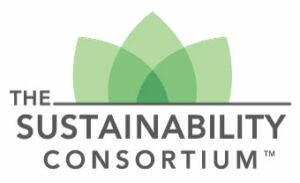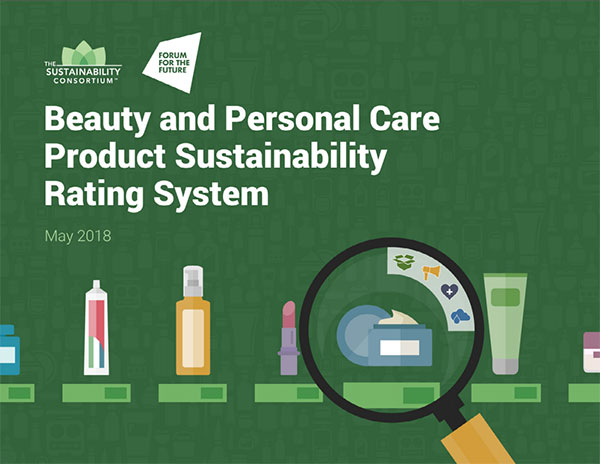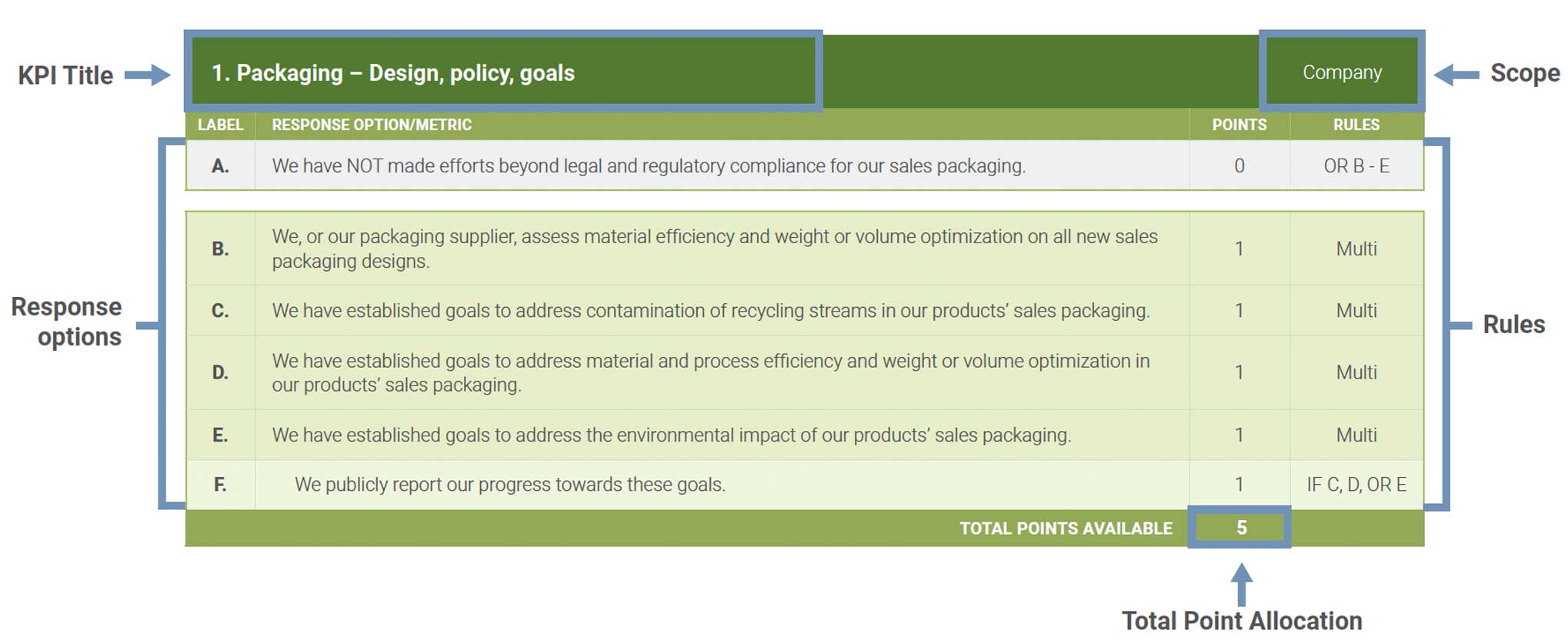BEAUTY AND PERSONAL CARE PRODUCT SUSTAINABILITY RATING SYSTEM
Forum for the Future and The Sustainability Consortium Work with Industry Leaders to Drive Sustainability in the Beauty and Personal Care Sector
Led by major brands and retailers, Forum gathered organizations from across the beauty and personal care supply chain to create a draft assessment tool for the personal care product industry
Program partners


Global non-profit organizations Forum for the Future (Forum) and The Sustainability Consortium (TSC) are announcing a significant step toward a more sustainable and transparent beauty and personal care product industry. Forum for the Future, along with TSC technical guidance, gathered representatives from across the beauty and personal products supply chain to develop a common assessment tool for evaluating the sustainability of beauty and personal care products, with the goal of simplifying and aligning the wide array of product assessment criteria in use today.
Participating organizations included Burt’s Bees, Colgate, CVS, Eastman Chemical, Environmental Defense Fund, Firmenich, Henkel, Johnson & Johnson, Method, Procter & Gamble, Sephora, Seventh Generation, Target, Unilever, Walgreens, and Walmart; input was also provided by a number of other industry stakeholders and thought leaders. Forum designed and facilitated the process that began with the Beauty and Personal Care Product Sustainability Summit in 2014, which was co-hosted by Target and Walmart and convened by Forum. The Summit and subsequent work responded to growing consumer and NGO demand for sustainable products, and the understanding that meeting this need would require key industry players coming together to find solutions.
Participating Organizations


The group of leading organizations has made significant progress, culminating in the piloting of a draft assessment tool in late 2017. The approach developed through this work aims to provide greater alignment across existing product sustainability measurement approaches and policies. It builds on current practices, beginning with existing science-based sustainability metrics.
TSC has led the technical work and will now take on coordination, development, and implementation of the assessment tool. This will allow TSC to ensure alignment with their existing product sustainability assessment, measurement, and reporting tools that currently cover over $200 billion in retail sales. This continued push toward more aligned assessment tools is an important step towards putting more sustainable products on retailers’ shelves.
The assessment tool includes a set of key performance indicators (KPIs), along with a proposed method of scoring products against these indicators. A range of sustainability attributes and activities, from basic practice to aspirational leadership, are reflected within the KPIs. Retailers and other companies may voluntarily use this tool to independently and individually evaluate product sustainability, with scores intended to remain confidential between retailer and supplier. Resulting product assessment may be used to facilitate supplier-retailer conversations, drive improvements in supply chains, and independently evaluate and incentivize better, more sustainable products.
As this evaluation tool continues to be tested and as the sustainability landscape evolves, the KPIs and product scores will be updated and improved over time through industry and stakeholder input. Forum for the Future has played a key leadership role in driving the work to this point and will remain engaged in the process going forward.

Beauty and Personal Care Product Sustainability Rating System 4.3 MB 4212 downloads
Global non-profit organizations Forum for the Future (Forum) and The Sustainability...Multi-stakeholder Approach
The Rating System was developed by the Beauty and Personal Care Leadership Group, a multi-stakeholder group comprised of leading brands, manufacturers, retailers, and non-profit organizations that represent broad perspectives on sustainability. To build a rating system that can be deployed across the beauty and personal care industry, each member of the group acknowledges that members have diverse points of view. As such, the attributes, activities, KPIs, and scoring used in the BPC Rating System represent a composite perspective of the current market and are not necessarily the views, policies, or program of any single participant of the Leadership Group themselves. Retailers will independently determine how to act upon any product ratings or scores resulting from the use of the system.
Current Status, Continued Development
In May of 2018 the BPC Product Sustainability Rating System was publicly released for initial use by brands and retailers. The released system includes 32 key performance indicators (KPIs) arranged into 4 thematic clusters: Packaging, Disclosure, Human Health, and Supply Chain and the Environment. These KPIs allow companies to differentiate products based on a spectrum of attributes and activities ranging from basic regulatory compliance through aspirational leadership. Scoring recommendations are provided for individual KPIs that contribute to cluster scores and ultimately an overall product score with a maximum of 400 points. Updates to the system will be made based on learnings from the system’s use and according to the evolving sustainability and regulatory landscapes.
Approach to Chemical Management
This rating system uses several KPIs to track manufacturer activities on chemicals management. Some of these KPIs reference the six publicly available chemical lists shown below. These lists were identified because they represented the smallest number of authoritative and regulatory lists that covered retailer chemical approaches. Note that this set of lists is not used in the BPC Rating System as a restricted substance list (RSL) and is not defined by the Leadership Group for such purpose. Instead, the BPC Rating System uses these lists in specific KPIs for simplicity in addressing retailer interest in the areas of chemicals management. For convenience in the BPC Rating System, all chemicals on these six lists are referred to as “chemicals on the stewardship list”. References to these lists outside of using the full BPC Rating System are accurately made by citing the lists’ original regulatory and scientific authorities and not the BPC system itself.
Chemical lists referenced by The BPC Sustainability Rating System:
- CA EPA Prop 65 – Reproductive and Developmental Toxicants, Carcinogens
- EPA Toxics Release Inventory PBTs
- EU – Cosmetics Regulation Annex II
- EU – Priority Endocrine Disruptors (Categories 1, 2)
- EU REACH – Annex XVII CMRs (Appendices 1 – 6)
- IARC – Groups 1, 2A, 2B

Those interested in learning more about the effort can contact:

Carolyn Baltz
VP, Development
The Sustainability Consortium
